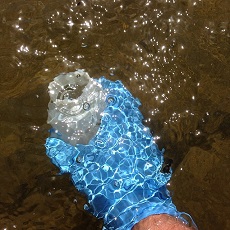Watershed Protection
IN SOUTH DAKOTA
Any lake, river or stream is a reflection of its watershed. Clean and healthy watersheds mean clean and healthy waters. The DANR Watershed Protection group works to assess, improve, restore, and maintain the health of South Dakota waters by providing local government bodies, natural resource management agencies, and the general public with information, funding, and technical assistance for watershed assessment and restoration projects.
The Watershed Protection staff:
Assess waterbodies for impairment.
Prepare Total Maximum Daily Load (TMDL) reports for impaired waters.
Make recommendations to the Nonpoint Source Task Force for water quality improvement projects under Section 319 of the Clean Water Act.
Recommend and provide funding for water quality implementation projects.
Monitor water quality in South Dakota Lakes through the Statewide Lake Assessment.
Oversee the Statewide Streamflow Monitoring Network.
Provide technical assistance for volunteer water quality monitoring.
Provide technical assistance for harmful algal blooms (HABs).

Section 319
The Clean Water Act was amended in 1987 by Congress to add Section 319, which is now the primary focus of state nonpoint source programs.
Volunteer Activities
DANR partners with the East Dakota Water Development District and the South Dakota Discovery Center to support volunteer water quality sampling efforts.
Total Maximum Daily Loads
The Clean Water Act was amended in 1987 by Congress to add Section 319, which is now the primary focus of state nonpoint source programs.
Nonpoint Source
Nonpoint source pollution and natural sources are leading causes of pollution in South Dakota.
Riparian Buffer Initiative
Riparian buffers improve water quality and provide valuable habitat, bank stabilization, additional forage for livestock, and increase the value of marginal crop lands.